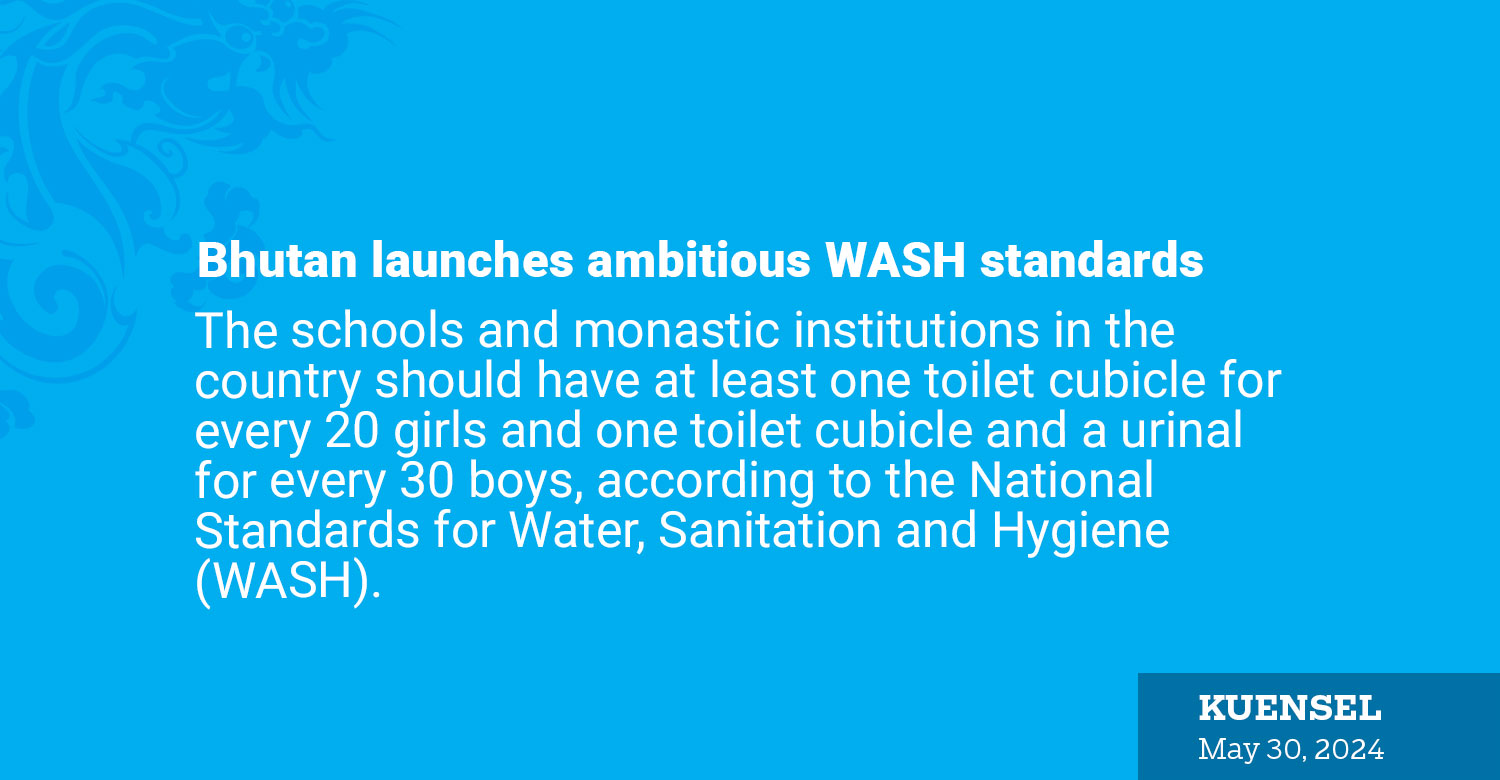
Not a single toilet in schools and monastic institutions in the country meets the standards
The schools and monastic institutions in the country should have at least one toilet cubicle for every 20 girls and one toilet cubicle and a urinal for every 30 boys, according to the National Standards for Water, Sanitation and Hygiene (WASH).
Red Dot Bhutan, the national advocacy platform for menstrual hygiene management, launched the national WASH standards for schools and monastic institutions on May 28, coinciding with the observance of Menstrual Hygiene Day in Samtse.
The standards recommend that every student, teacher, and practitioner, regardless of location or institution, have access to clean water, proper sanitation, and sound hygiene practices.
According to the national standards, all toilets must be conveniently accessible to all users. They should be attached to or located near classrooms to ensure easy access for children. In boarding schools and monastic institutions, toilets should be housed within or attached to hostel buildings. They must be brightly lit.
The standards state that construction materials for WASH facilities must be chosen based on climatic conditions. Toilets should have ventilated cubicles, squatting pans with at least one European-type pot closest to the main entrance, waterproof doors with age-appropriate latches, appropriate floor tiles, wall tiling that is at least one metre high, a flushing system, a toilet paper holder, and a wash basin with a mirror.
Similarly, schools and monastic institutions should have adequate handwashing stations, with one tap for every 50 students, along with soap in the toilets and dining rooms, kitchens, or areas where students eat. For bathing purposes, there should be at least one shower cubicle for every 40 students, designated spaces with water supply and a drainage system for laundry and menstrual hygiene facilities with separate changing rooms.
An official from Red Dot said that the standardisation of WASH facilities is expected to elevate the quality of facilities and underscore dedication to equity and inclusivity. It will ensure that no student or practitioner is left behind and that each of them benefits from an environment that prioritises their health, hygiene, dignity, and overall wellbeing.
Speaking at the launch, the minister for education and skills development, Yeezang De Thapa, said that the launch of the national standards for WASH in schools and monastic institutions sets Bhutan on the path to bigger aspirations in menstrual health management.
The manager of religion and health programme with the Central Monastic Body, Kinley Penjor, said the standards would improve the quality of WASH facilities in monastic institutions and make WASH services period-friendly. “As we advocate the national standards, the members of the monastic body will create awareness to destigmatise menstruation in the communities,” he said.
Every student and staff member manages the WASH facilities in schools and monastic institutions.
A technical working group member stressed that school authorities should prioritise the budget and maintenance of WASH facilities. Schools and monastic institutions must propose to their respective local government, dzongkhag, thromde, or rabdey for any major structural maintenance of WASH facilities. These public authorities should provide support based on needs assessments.
According to the official, the technical working group will develop parameters to assess existing toilets.
Today, not a single toilet in schools and monastic institutions meets the standards.












